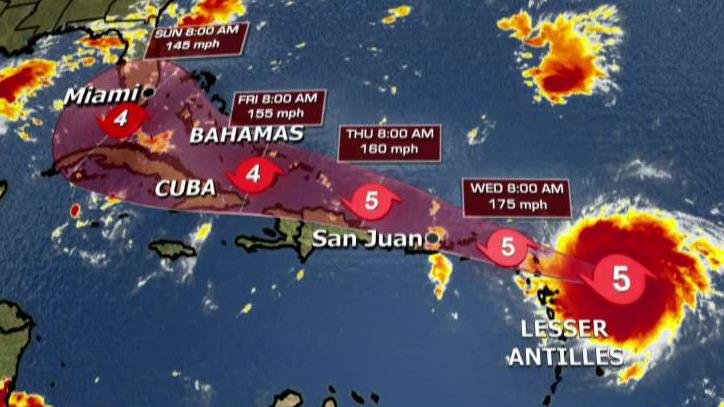Hurricane Irma's coming: What an average family spends and does to prepare
The strongest Category 5 storm ever recorded—Hurricane Irma—is expected to make landfall in Florida by the weekend and early next week. Florida Gov. Rick Scott has already declared a state of emergency in all 57 counties in Florida, sending many families in panic mode as they gather the essentials like food and water to prepare for the worse.
But it’s not just extra food costs that most households have to worry about, getting prepared for a major hurricane could cost a family thousands of dollars.
“This can run the average family about $5,000 or more for most evacuations. Go on Amazon and start adding the items and look at the cost of gasoline, which is rising due to Hurricane Harvey. Add on top of that additional expenses for hotel stays, portable stoves, plywood, and hardware, and you are looking at substantial losses,” Daniel Odess, President of GlobalPro Recovery, a Coral Gables-based company that helps businesses and homeowners with insurance risk.
The National Hurricane Center said families in danger zones need to have a “basic disaster supplies kit” available in case of a disaster that should include water, food (at least a three-day supply), battery-powered or hand crank radio, a flashlight, a whistle, tools, maps, and a first aid kit.
A National Oceanic and Atmospheric Administration (NOAA) spokesperson told FOX Business that the 2017 Atlantic hurricane season “will be one of the most destructive seasons” without a doubt, so families shouldn’t cut any corners when preparing.
Odess adds that while safety and the basic essentials should be everyone’s first priority—families should also start preparing for possible insurance claims down the road.
Here are five things every family needs to do before a major hurricane, according to Odess.
1) Take photos and videos of your property. Don’t narrate the video, this is a documentary not a social media post.
2) Collect your policy forms. If you are running out of time, simply ask your agent or call the insurance company directly and ask for a copy of the declaration page. This contains all your coverages and limits and usually has the toll free number for the insurer on the face of it.
3) Collect emergency contact information for local authorities and reach out to your neighbors. What goes on next door can affect you and your property. You may need their help and they may need yours. Resources are limited, we all need to pitch in. You want to make sure your community can recover quickly and that takes a community effort. The only way we can work together is if we are communicating with each other. If you don’t know your neighbor, now is a good time to introduce yourself.
4) Locate your local shelter and large retail hardware store, i.e.: Home Depot or Lowes. Even if you don’t plan to go there, local and federal aid will collect at these locations. Also, following a storm communication is limited, i.e.: phones, TV, etc. and for the few days after the conditions can be dangerous. These shelters provide access to information. Government officials are constantly coordinated outreach and the distribution of information at these locations. As for the large retail hardware stores, Insurance companies and large CAT contractors tend to stage their efforts in these parking lots – they are big parking lots and offer immediate access to resources. With the majority of insurance claim money being spent at these retailers, it’s probably a good bet you’ll find someone there that can help.
5) Be prepared to wait. Don’t rush to report a claim and don’t expect immediate payment for your damages. So, have plenty of cash on hand to weather the aftermath of the storm. Your policy will require prompt notice, not immediate notice. Be prepared to take care of you family and your own personal immediate needs. Just because you report your claim immediately, doesn’t mean your property will be inspected first nor paid first. With adjusters deployed to hard hit areas like Texas, it’s going to take even longer. Understand that most of these adjusters will not be from the area. This means, they might not be familiar with the area, construction trends and costs, or even your insurance company. These individuals represent the interest of the insurance company, not yours and in the wake of a storm, insurance companies are pooling resources, which means hiring new independent adjusters to handle your claim on their behalf.




















